

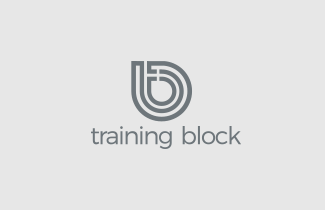
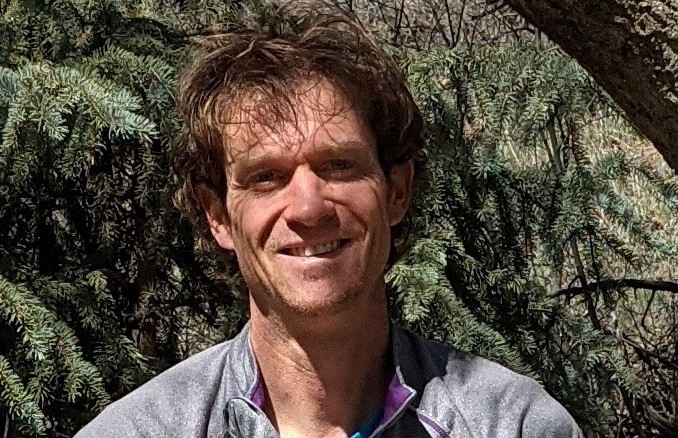
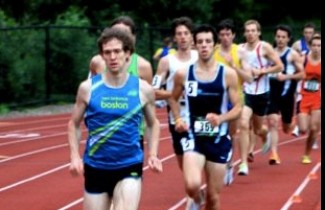
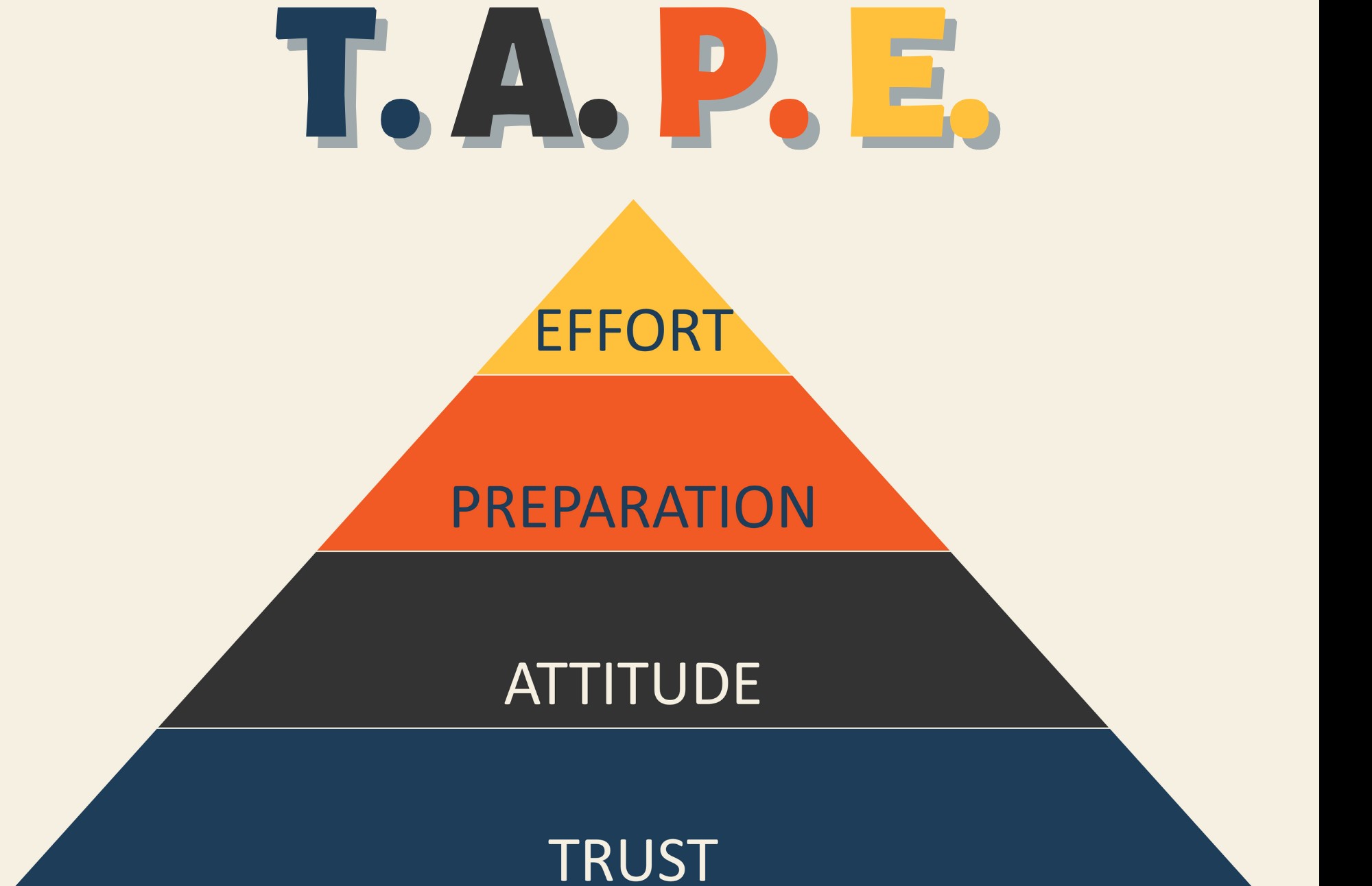
Elite athletes are often described as having "it", which is typically believed to be a natural characteristic. In reality, elite athletes train their mind with as much intentionality as they do their body, creating "it". This training of the mind is called mental strength training and can help athletes perform at or near their personal excellence more frequently. Performing at high levels consistently leads to PR’s, high save percentages, increased scoring, more aces, efficient pitching, etc. in short, any athlete can utilize mental strength training to perform at high levels consistently.
Athletes who work with Colin receive a fully customized mental strength training plan that helps them to develop consistency in their sport. This is done through operating on two timelines. The first timeline is designed to help athletes to develop mental strength skills such as goal setting, positive self-talk, breathing exercises, pre-competition routines, re-focus routines, emotion control, refraining, and several other skills. The second timeline focuses on developing robust self-confidence that can weather the highs and lows of sports. Robust self-confidence is built on a foundation of high self-esteem and secure self-identity (not defined by results!). Colin helps athletes establish effective self-reflection skills and a constructive relationship with failure to build self-esteem, self-identity, and self-confidence.
Athletes who train their mind with the same intentionality as they do their body can consistently elevate their personal excellence. If you are interested in developing mental strength skills to help you reach your personal excellence in sport, and in life, reach out to Colin to schedule an initial session or to learn more about the process.
For runners, Colin offers a unique training experience that combines mental strength training with customized run training. As an accomplished running coach, Colin can help you achieve and surpass your running goals. Athletes looking to reach their own personal excellence on the track (400m-10,000m), the roads (5k-Marathin), and the trails (5k-Ultras) reach out to Colin to get started today.
MS Applied Sport Psychology
USATF Level I Coach
USTFCCCA Level I Coach
RRCA Level I Coach
colin@omptraining.com
www.omptraining.com
Monthly run training plan customized to your goals and abilities.
This plan includes:
- Weekly training that adapts to your unique needs while keeping focusing on your goals
- Weekly in person training session (one)
- Weekly 60 minute mental strength training sess...
Monthly run training plan customized* to your goals and abilities.
This plan includes:
- Weekly run training that adapts to your unique training needs while focusing on helping you achieve your goals
- In person training session once a week
- Weekly 15 minute trai...
Monthly run training plan customized* to your goals and abilities.
This plan includes:
- Weekly run training that adapts to your unique training needs while focusing on helping you achieve your goals
- Weekly 15 minute training check-in conversation
- Strength/Mob...
Monthly run training plan customized to your goals and abilities.
This plan includes:
- Weekly run training that adapts to your unique training needs while keeping focusing on your goals
- Weekly 60 minute mental strength training session (in person or virtual)
-...
Customized mental strength training session focused on helping you more consistently achieve your personal excellence.
Customized mental strength training session focused on helping you more consistently achieve your personal excellence.
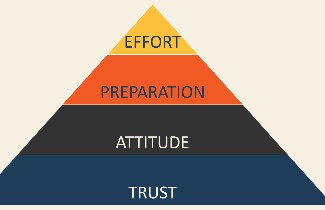
In this article, I will argue that in high pressure situations there a...Read More
In this article, I will argue that in high pressure situations there are only four things within your control. In fact, I would further this argument by saying that outside of these four elements, nothing in a competition or performance is within your control.
So, without further ado, I will introduce the four elements. At our base, we have trust; this trust must be all encompassing. Next, we have attitude; a negative or defeatist attitude is never present in successful performances. Our ascent brings us to preparation; an ill-prepared performer will be playing catch up the entire time. And finally, we encounter effort; giving 100% of what is available to you can help you reach great heights. Let us examine each element independently, and then we can roll them up in a nice little package. Some might even say a shape is more appropriate, like a cylinder with a hole through the middle, possibly with fabric on one side and an adhesive on the other. But who am I to generate analogies?
Trust is the foundation because you need to have absolute trust in yourself, otherwise performances will be subpar. So how is trust within your control? This is one of those tricky, simple in concept but difficult in practice situations. To be honest, most of this trust comes from making the deliberate choice to trust yourself. There are many techniques and skills one can develop (OMPT is here to help, as are many other great mental strength coaches) to fine tune this trust, but the very first thing that needs to happen is you deciding to trust yourself. I will be brutally honest, this trust is going to be challenged many, many times and it will be difficult to maintain. Trust in one’s ability to learn from the experience, to give maximum effort, to always see the positive, to have the skill to make the necessary adjustments, and to be deliberate in your preparation in order to overcome these challenges. In short, this trust is based on a decision you make, a decision that needs to happen before you can consistently experience success.
Attitude is our next controllable on the journey up the pyramid. As with trust, attitude is largely a decision, one that can be made regardless of the outcome of a performance. I get it, most of us want to “win”, and “winning” is foundational to high performance situations. But choosing to be angry, despondent, frustrated, etc. after a poor performance is extremely counterproductive. Should you be content with a poor performance? Absolutely not. But choosing to take a negative attitude will not result in growing from the experience. Which, at the end of the day, isn’t this growth the entire point of competition? On the other hand, choosing a positive attitude is much more conducive to learning from our performances, good or bad, because you will be more receptive to feedback. This feedback is what will make you better in the long and short run, but only if you act on the feedback.
Let us take a second to examine the concept of positive attitude. There is an aspect of this concept that simply relies on a person being genuinely happy and upbeat. This is important, yes. However, I am talking about being optimistic that you can understand the situation and learn from this situation. Essentially, you trust in your ability to maintain the appropriate attitude in order to adapt appropriately to the specific situation. Choosing a positive, productive, and open to feedback attitude will help you enjoy the journey, and this enjoyment will lead to greater levels of mastery.
Preparation is the third controllable. Some of you reading this may think preparation should come first – how can you get better at something if you do not practice? My argument is that your preparation needs to be deliberate and focused, which will not happen without trust or attitude. So, what do I mean by preparation? Is preparation simply getting out there and completing a workout or training session? No! Is preparation spending hours and hours poring over game film, reading stat sheets of upcoming opponents, or knowing details of the racecourse? We are getting a little closer, but this is still not particularly good preparation. The preparation I am talking about (which remember, is within your control) involves being deliberate and intentional in everything you do.
Why don’t we look a little closer at some of the examples listed above. Watching game film can feel like you are doing something, but unless you are looking for specific details and have a goal for what you plan to do with these details, you are just wasting several hours per week. Knowing the stats of an upcoming opponent, I argue, is pretty much useless (understanding their tendencies and behaviors is worthwhile, but not the same as knowing their stats). You have zero control over an opponent’s performance (unless you do something to physically harm them, but then you will be removed from the competition). How they execute their game plan is something you should not worry yourself about. Finally, knowing where hills are, tight turns, and narrow sections of the trail are somewhat helpful, but knowing what you are going to do for each of those features, and what role they play in your race is much more effective. This knowledge is much more effective because it will guide your preparation; it will allow you to be more deliberate in the skills and physical fitness you choose to develop. When you actively, and deliberately prepare for a competition, the exercises, skills, drills, and training you do at practice will intentionally replicate the competition environment to prepare you for the unpredictability of live competition.
Effort is the top of the pyramid, this is where our best performances will come from if we have built a solid foundation of trust, attitude, and preparation. It is extremely hard to give full effort if you do not trust yourself. The extraordinary effort required for high end performances will not be possible if you do not have a positive and open attitude. Deliberate, and intentional preparation allow you to give maximum effort and not worry about your ability to execute the required skills. This is why effort sits at the top of our pyramid of excellence. What does it look like when your effort is completely within your control? It looks like giving everything you have on a given day, which will rarely be 100% of your abilities. I want you to pause for a second, how many times have you shown up to a competition and felt 100%? You had no lingering aches and pains, you felt totally “sharp”, everything in life outside of sport was going perfectly, your diet and sleep were completely dialed in with zero interruptions? My guess for your answer (and my own answer) is maybe 5% of the time. Unfortunately, one cannot reschedule a competition simply because they do not feel 100%. What you can do is assess what you do have that day and give 100% of that number. This assessment will not be terribly accurate unless you fully trust yourself, have a positive and open attitude, and are expertly prepared.
When you completely commit to focusing on the four controllables, and nothing else, you will set yourself up for more consistent peak performances. I hope to post twice a month on various mental strength topics so please regularly check back for helpful insights.
Please reach out to me if you have any questions about a post or mental strength training in general. Until next time, always remember to bring your TAPE!

0

0

0
you must login
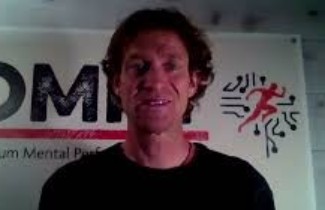

If we are motivated by a fear of failure, we will not consistently per...Read More
If we are motivated by a fear of failure, we will not consistently perform to the levels we want.

0

0

0
you must login
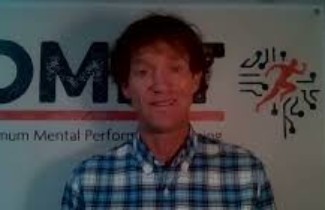

Learn the what Self-Tal is and how to manage it. Understand the basic...Read More
Learn the what Self-Tal is and how to manage it. Understand the basic elements of two effective self-tal strategies: Self-Talk Replacement, Self-Talk Reframing.

0

0

0
you must login


Often times we are overwhelmed with emotion right before the start of...Read More
Often times we are overwhelmed with emotion right before the start of a race or competition. Power Breaths are designed to help manage pre-competition anxiety that manifests as somatic and cognitive anxiety through combining breathing and self-talk.

0

0

0
you must login
Elite athletes are often described as having "it", which is typically believed to be a natural characteristic. In reality, elite athletes train their mind with as much intentionality as they do their body, creating "it". This training of the mind is called mental strength training and can help athletes perform at or near their personal excellence more frequently. Performing at high levels consistently leads to PR’s, high save percentages, increased scoring, more aces, efficient pitching, etc. in short, any athlete can utilize mental strength training to perform at high levels consistently.
Athletes who work with Colin receive a fully customized mental strength training plan that helps them to develop consistency in their sport. This is done through operating on two timelines. The first timeline is designed to help athletes to develop mental strength skills such as goal setting, positive self-talk, breathing exercises, pre-competition routines, re-focus routines, emotion control, refraining, and several other skills. The second timeline focuses on developing robust self-confidence that can weather the highs and lows of sports. Robust self-confidence is built on a foundation of high self-esteem and secure self-identity (not defined by results!). Colin helps athletes establish effective self-reflection skills and a constructive relationship with failure to build self-esteem, self-identity, and self-confidence.
Athletes who train their mind with the same intentionality as they do their body can consistently elevate their personal excellence. If you are interested in developing mental strength skills to help you reach your personal excellence in sport, and in life, reach out to Colin to schedule an initial session or to learn more about the process.
For runners, Colin offers a unique training experience that combines mental strength training with customized run training. As an accomplished running coach, Colin can help you achieve and surpass your running goals. Athletes looking to reach their own personal excellence on the track (400m-10,000m), the roads (5k-Marathin), and the trails (5k-Ultras) reach out to Colin to get started today.
MS Applied Sport Psychology
USATF Level I Coach
USTFCCCA Level I Coach
RRCA Level I Coach
colin@omptraining.com
www.omptraining.com
Training Block was created with a mission to support and empower runners, in order to elevate our sport. We do so by giving runners access to a network of local sport performance providers, who provide runners with the care they need from coaching, physical therapy, massage, strength training, and more. We also give providers an easy way to connect with each other and share articles, videos, and other resources that benefit runners and providers alike. For every service booked through Training Block, we donate 10% of our revenues to Training Block’s Elite Athlete Fund, which sponsors elite runners who do not have professional contracts and need financial support for racing at their highest level.
Copyright © 2024 Training Block. All rights reserved.
Refer a friend and get $5 discount on order!